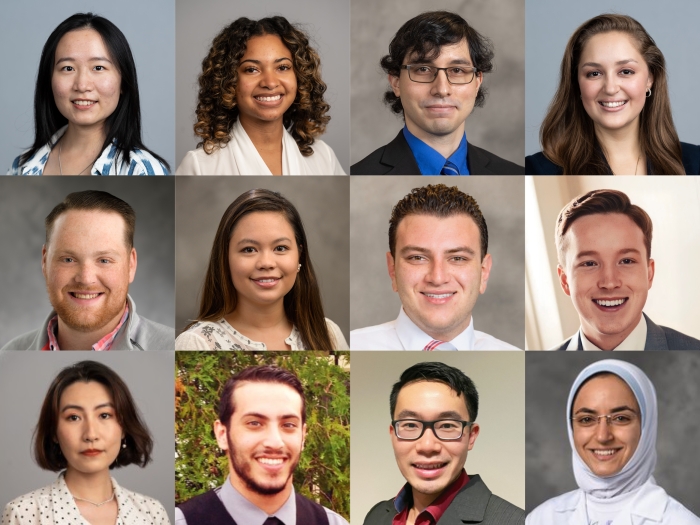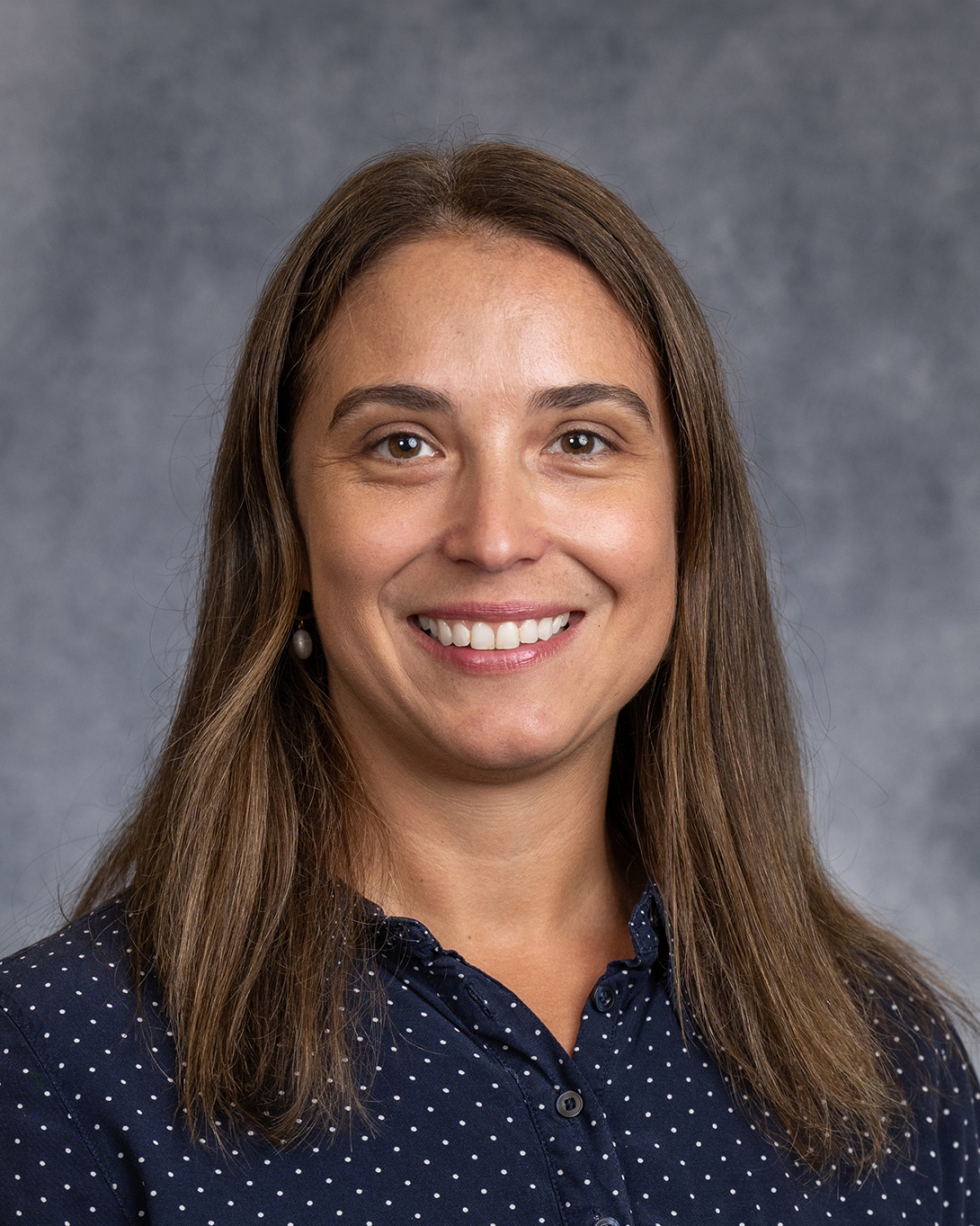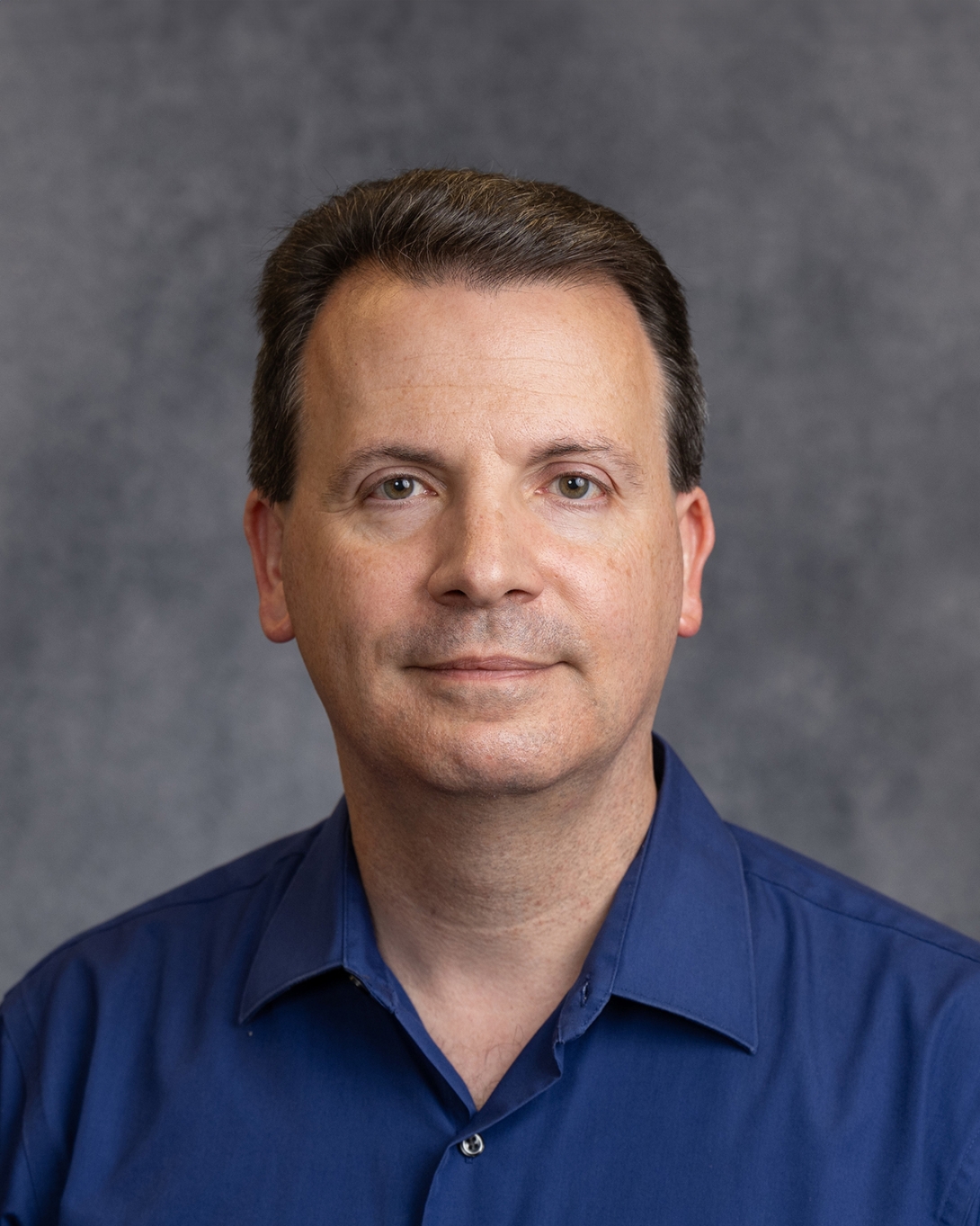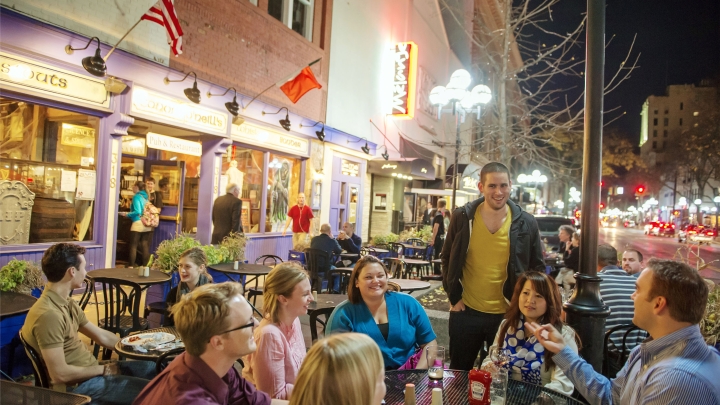
The U-M Medical School Department of Biological Chemistry offers one-year master's degrees designed to broadly train tomorrow’s leaders in biomedical sciences.
Our trainees are well prepared for employment in industry or for matriculation into elite graduate or medical programs. Two tracks of study are offered, depending upon the goals and interests of the students.
Master of Science (MS) in Biological Chemistry, Research Track
This one-year (two-semester) program of didactic coursework in biochemistry includes an intensive research experience and a written research thesis. This program is intended for individuals seeking to increase their skills and research experience for employment opportunities, or for application to highly competitive PhD or medical professional degree programs. Research track students are encouraged to begin work in their mentor’s laboratory prior to the beginning of Fall term, particularly if they will be applying to graduate schools during the program.
The intensive research experience is a key feature of the research track. Our faculty members conduct research at the cutting edge of modern biochemistry and molecular biology. Current areas of research include structural biology, protein biochemistry, enzyme reaction mechanisms, molecular genetics, signal transduction, neurobiology, cell and developmental biology, and bioinformatics. Students match with a faculty research mentor in Biological Chemistry after advisement by the program and by mutual consent with the faculty, either before arrival on campus or immediately thereafter.
The capstone of the research experience is a written thesis. The thesis is expected to be a synthesis of scholarly background and discussion of the research project, in addition to an original experimental or theoretical contribution to the field. A committee composed of the mentor and two additional faculty members evaluates the thesis. Upon their positive assessment, including any required modifications, the student is eligible to be awarded the master’s degree.
Master of Science (MS) in Biological Chemistry, Course Track
This one-year (two-semester) program of didactic coursework in biochemistry and related fields is designed for students who plan to enroll in medical, dental, veterinary, law, or other professional programs. Students on this track take two semesters of rigorous, graduate-level coursework. In addition, students conduct a mentored literature review in a selected area of interest, working one-on-one with a faculty mentor in Biological Chemistry. The capstone of the course track is a written scholarly literature review. Students on this track are exposed to an impressive array of modern research topics and methodologies through seminar programs, a critical analysis course, and interactions with our faculty, and are well prepared to succeed in professional programs.
Applicants should submit the Rackham Graduate School online application. In addition to the online application itself, college transcripts, academic and personal statements, and 3 letters of recommendation are required. GREs are optional. International applicants, whose native language is not English, are required to submit official TOEFL scores directly from ETS.
- A scanned/electronic copy of the official transcript will be used for initial review by our admissions committee. You will be required to have your official transcript sent to the Rackham Graduate School only if you are recommended for admission.
- All applicants should report their Grade Point Average (GPA) on page 5 of the online application. The GPA should be reported using a standard U.S. 4.0 scale. Applicants who attended an institution outside the United States should convert their international average grade point to a U.S. 4.0 scale GPA (for instructions see "How to Convert Grades to a U.S. GPA")
Prerequisites
- Completion of a bachelor’s degree from an accredited university (before matriculation into the master’s degree program)
- GPA of 3.0 (minimum)
- GREs are optional
Students should have taken an undergraduate biochemistry course and should have a passion for understanding life processes at a molecular level.
Financial Aid and Support
Students in the master’s degree program self-fund the costs associated with this program, including tuition, fees, and health insurance. Tuition costs for the 2023–2024 academic year (two semesters) were approximately $27,500 for in-state students and $55,100 for out-of-state students. Information about the cost of attendance is available from the Financial Aid Office. Information about fellowship opportunities for master’s degree students is available from the Rackham Graduate School. Applications received by February 1 will be considered for these fellowships.
Coursework in both tracks consists of required and elective components. To maintain academic standing, advance to the second semester of the program, and be awarded the MS degree, a B- or better is required in all coursework. Students who are experiencing difficulty in any course should contact the master's program director early in the semester, and tutors can be identified to assist.
A typical credit load is 14-15 credits per semester for a minimum total of 29 credits, including 3 cognate credits, and development and completion of a written literature review (Course Track) or thesis (Research Track). Detailed course descriptions and offerings can be found in the LSA Course Guide (search Credit Type: Graduate, and Subject: MED Biological Chemistry) and the LSA Graduate Course Catalog (search Department: MED Biological Chemistry).
- BIOLCHEM 655 Molecules of Life: Protein Structure, Function & Dynamics (3 Cr, F; for most students with advanced standing in biochemistry, e.g., a biochemistry UG degree) OR BIOLCHEM 515 Introductory Biochemistry (4 Cr, F, W)
- BIOLCHEM 601 Critical Skills (1 Cr, F)
- BIOLCHEM 597 Critical Analysis (2 Cr, W)
- BIOLCHEM 614 Scientific Writing and Skills (1 Cr, W)
- BIOLCHEM 711 Graduate Seminar (1 Cr, F/1 Cr, W)
- BIOLCHEM 712 Biological Chemistry Seminar Series (1 Cr, F/1 Cr, W)
- PIBS 503 Research Responsibility & Ethics (1 Cr, F)
Research Track
- BIOLCHEM 600 Independent Study (MS thesis research) (5-6 Cr, F/5-6 Cr, W)
Course Track
- BIOLCHEM 603 Literature Review and Analysis (2 Cr, F; 3 Cr, W)
Fall
- BIOLCHEM 650 Eukaryotic Transcription and Epigenetics (2 Cr, F)
- BIOLCHEM 690 Biochemical Regulatory Mechanisms (2 Cr, F)
- BIOLCHEM 713 Emerging Areas of Biochemistry (1 Cr, F)
Winter
- BIOLCHEM 528 Biology and Chemistry of Enzymes (2 Cr, W)
- BIOLCHEM 602 Protein Crystallography (3 Cr, W)
- BIOLCHEM 640 Regulatory RNA and Control of Gene Expression (2 Cr, W)
- BIOLCHEM 673 Enzyme Kinetics (3 Cr, W)
- BIOLCHEM 675 Biochemistry and Cell Biology of Membranes and Organelles (2 Cr, W)
Fall
- BIOINF 527 Introduction to Bioinformatics and Computational Biology (4 Cr, F)
- BIOINF 528 Advanced Applications of Bioinformatics (3 Cr, F)
- BIOPHYS 520 Biophysical Chemistry I (Methods and Techniques) (3 Cr, F)
- BIOSTAT 501 Introduction to Biostatistics (4 Cr, F)
- BIOSTAT 521 Applied Biostatistics (4 Cr, F) [calculus prerequisite]
- CDB 530 Cell Biology (3 Cr, F)
- HUMGEN 545 Molecular, Cellular and Organismal Genetics (3 Cr, F)
- PHYSIOL 502 Human Physiology (4 Cr, F)
Winter
- BIOINF 524 Foundations in Bioinformatics and Systems Biology (3 Cr, W)
- CDB 550 Histology (4 Cr, W)
- CDB 581 Developmental Genetics (3 Cr, W)
- CDB 582 Stem Cells: Organogenesis to Regenerative Biology (3 Cr, W)
- MICRBIOL 504 Cellular Biotechnology (3 Cr, W)
- NEUROSCI 525 Introduction to Pain, Neuroscience (3 Cr, W)
- MICRBIOL 607 Microbial Pathogenesis (3 Cr, W)
- PATH 581 Tissue, Cellular and Molecular Basis of Disease (3 Cr, W)
*This is a partial list. Consult your research mentor and academic advisor if you would like to take an elective course or courses not listed above.
In addition to coursework and research, students attend seminars, present a seminar to the department critically evaluating a research paper, and take skills-based courses focused on communication and professional development.
- Develop and complete a written literature review (Course Track) or perform research and complete a written research thesis (Research Track).
- Attend 75% of the Biological Chemistry Departmental Seminars each term to fulfill BIOLCHEM 712 credit.
- Collaborate with their research mentor to select a research paper for their BIOLCHEM 711 presentations in Winter term. Students will prepare an abstract and present a seminar to the department critically evaluating the research paper.
- Write a Rackham Research Grant in Fall term. Research track students are highly encouraged to apply for the grant through Rackham to obtain $1500 in funds for their thesis research. Course track students are not eligible to apply but will still write a grant as part of their BIOLCHEM 603 expectations.
- Present a poster at the end of Fall term as part of the program and BIOLCHEM 601 expectations.
- Present a research presentation at the MS Symposium at the end of Winter term. The Symposium is an opportunity for students to share their MS achievements and celebrate their completion of the program.
Biological Chemistry MS students form a strong cohort and develop a rich network of professional colleagues and friends during the program. Students are actively engaged in the Biological Chemistry and broader Michigan community through the program, coursework, their mentor and labs, journal clubs, and social events.
MS Program Social Events - Community is instrumental to the success and well-being of all students. The MS program hosts social events during the academic year both on campus and off campus to facilitate community building and fun.
Annual Departmental Research Retreat - The student-organized Biological Chemistry research retreat, held at Maumee Bay Lodge & Conference Center in Ohio in recent years, provides students, postdoctoral fellows, and faculty an opportunity to present and discuss research in a relaxed and informal setting.
Biological Chemistry Seminar Series - The Department of Biological Chemistry sponsors a weekly seminar program during the Fall and Winter terms that features outside speakers of international reputation. The seminars are held each Tuesday at noon, and all biochemistry students are required to attend. Students are invited to share lunch and conversation with the speaker following the seminar. In addition to the weekly seminar program, the Department sponsors an annual Distinguished Graduate Lecture and six endowed lectureships: the Irwin Goldstein Lectureship in Glycobiology, the G. Robert Greenberg Lectureship, the William E.M. Lands Lectureship in the Biochemical Basis for the Physiology of Essential Nutrients, the Martha L. Ludwig Lectureship in Structural Biology, the Rowena Matthews Lectureship, and the George William Jourdian Lectureship.
Fall Poster Session - All MS students present their thesis or literature review research at a poster session held at the conclusion of Fall term. Students are encouraged to invite their mentors, lab members, committee members, etc.
Monthly Science Hour - Once a month, members of the department are invited to gather to enjoy conversation and appetizers.
MS Symposium - All MS students present their thesis or literature review research at a symposium held at the conclusion of Winter term. Students are encouraged to invite their mentors, lab members, committee members, etc. Family and friends are also invited to celebrate the accomplishments of our students.
Career and Professional Development - The program maintains an active and engaged alumni community who participate in career panels and mentoring for current MS students. Students also benefit from workshops and resources provided by the program, the Office of Graduate and Postdoctoral Studies, and Rackham Graduate School.
Our student handbook is an in-depth guide detailing the master's program academic requirements, departmental events, student resources and more.
Each academic year we welcome MS students who follow either the research track or the course track of training.
No. All applications must be made to the Rackham Graduate School. They have admissions criteria that must be met before we can consider an application, including the qualification of your undergraduate degree and your English fluency.
Yes. Our one-year (two semester) curriculum is very demanding and assumes that you have had strong undergraduate training in biochemistry. We look at your biochemistry grades specifically to determine if you are prepared sufficiently for our program.
Our graduates go on to either graduate school, medical school, or research positions at universities or in industry. Our program has two tracks, the course track and the research track. Generally, most students thinking about medical school will take the course track and most students thinking about graduate school will take the research track, but this is not always the case. Some students change their career trajectory while in the program. Our MS administration is well-versed in key steps and resources for all these career pathways. Many of the skills you master in our MS program will be useful in any of these potential careers, including preparing a seminar, scientific writing, and designing experiments.
We dig a little deeper than just the GPA. If there were extenuating circumstances as to why grades were lower when first starting college or if the undergraduate experience was impacted by illness or injury, we take that into account.
We want to see that you have the talent and passion to succeed in our program. Ours is a training program, so we don’t expect students to be perfect, but we don’t want to set them up to fail either. Some students learn that they need to speak up and present their ideas in our discussion coursework. Some learn to structure their writing in a way that is scientifically precise so that key concepts are accurately communicated. All students will face challenges that they will need to overcome. We support our students by helping them to overcome these challenges through individual counseling sessions.
In the Academic Statement we are looking for the academic experiences that suggest you will do well in our courses and in understanding the research literature. In the Personal Statement we are looking for your motivation for the MS degree and how you foresee it helping you achieve your career goals.
Required prompts for the Academic Statement:
Describe your most significant research or learning experience (Examples: undergraduate thesis research, summer internship/research experience, course-based lab project, literature review for a course, etc.). What did you learn most from this experience? What was your greatest obstacle during your research experience and how did you overcome that obstacle?
What interests you most about biochemistry? Is there a particular research area or Biological Chemistry faculty whose research is particularly interesting to you?
What are your professional goals and how will a MS degree in Biological Chemistry help you achieve them?
Absolutely. You will be asked to submit the names of 5 faculty members whose research aligns with your current interests to either complete your thesis research (research track) or literature review (course track). Additionally, if you are excited about the research of some of our faculty, mention it in your Academic Statement and why you are excited about it.
You can review our current year’s MS student handbook that gives courses (required and elective) as well as some of the deadlines for both our research track and course track students.
No. There is no financial aid available through the Biological Chemistry department. Most students will pay their tuition and housing costs for the entire year. Only rarely (less than 5% of the time) are our MS students able to secure supplementary funding from the Rackham Graduate School.
We look over each application carefully. We interview roughly 25% of the applicants and make offers to those students that we are convinced will succeed in our program and will benefit from the training of the program.
Review of applications will begin in February and decisions will be made on a rolling basis, with final recommendations for admission made by May 1 for international students and by June 1 for U.S. citizens and permanent residents.

Our Master’s Program welcomed its first students in 2013 and has been preparing trainees for biomedical careers and the pursuit of advanced degrees ever since.




Our interdisciplinary research into the molecular mechanisms of life offers a wide variety of investigative opportunities to students and fellows.

We believe that nurturing personal well-being can promote success in science and in life. The University of Michigan offers many health and wellness services and activities to learners, employees, and their loved ones.

We find a new reason to love Ann Arbor nearly every day — year-round outdoor activities, cultural experiences, a growing food scene, and a welcoming, family-friendly atmosphere are just a few that come to mind.